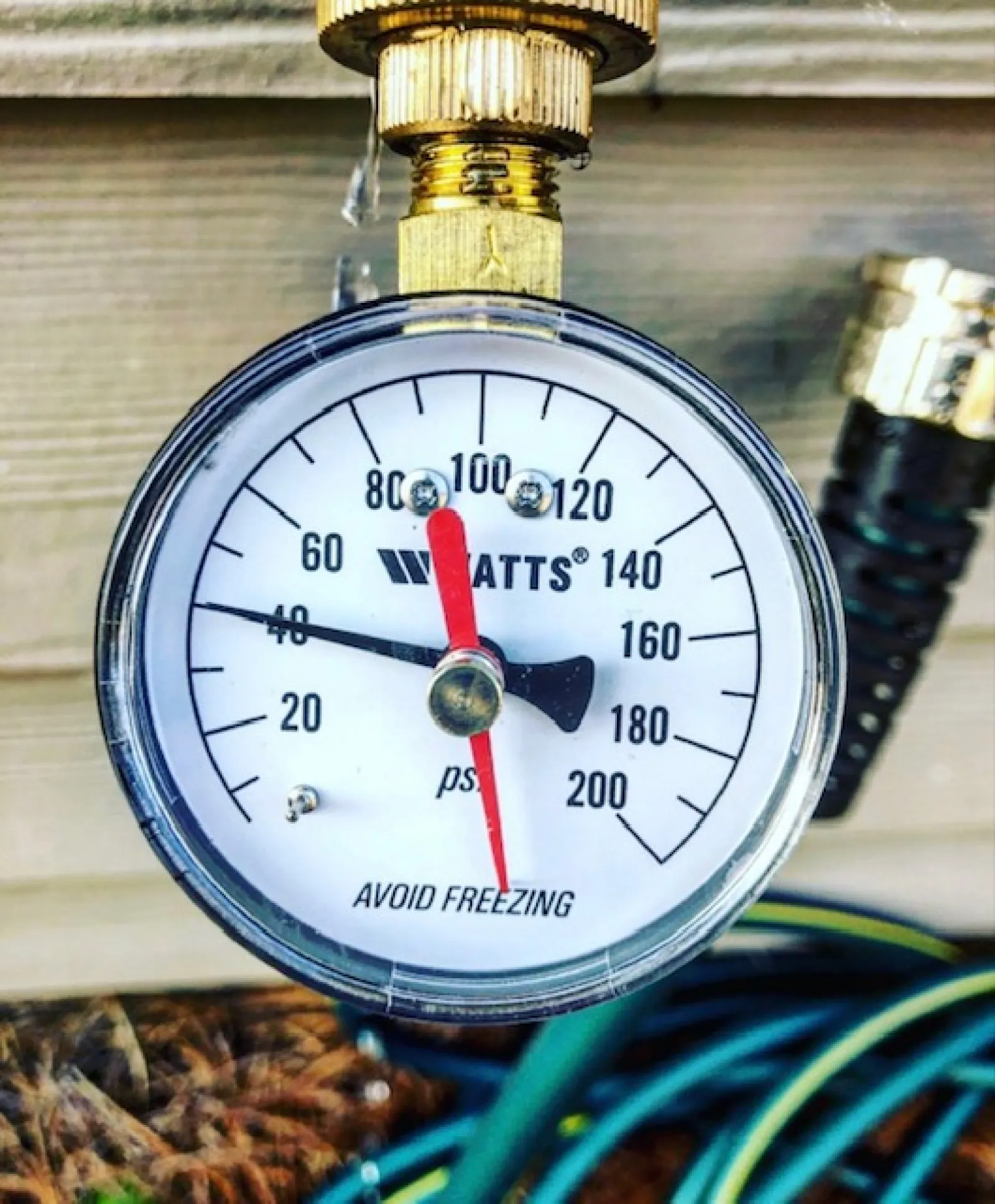Everyone talks about wanting high water pressure, but the truth is… you really don't.
Household water pressure above 80 psi can damage some plumbing lines and void warranties on a variety of household appliances such as water heaters, dishwashers, and more. I always check household water pressure during a home inspection and it's something that most homeowners should check periodically as well. A typical water pressure regulator on a supply line has a finite life and it is not uncommon for them to fail and go unnoticed for a long time.
A simple water gauge like the one pictured is available at most hardware stores for under $10. Use it to measure water flow from an interior water supply such as a laundry connection or rear hose bibb. Just make sure the hose-bibb you choose is at the rear of the property, as most street-facing spigots fall before the pressure regulator and may intentionally be at a higher pressure for fire-safety reasons.
Look for a psi measuring between 40-80 and you're good to go! If you're below 40 or above 80 psi… you may want to call your plumber.
----------
About Cingo: The name Cingo means to surround and secure, conveying the company's commitment to home protection. The company has been protecting families in the Southeast since 1974. It provides home protection services throughout Georgia and South Carolina, including Atlanta, Augusta, Charleston, Douglas, Dublin, Milledgeville, Savannah, Vidalia, Waycross and all points in between. Cingo was named a Best Place to Work in Georgia by Georgia Trend Magazine and listed as a National Best & Brightest Company to Work For. Learn more at www.cingohome.com.

